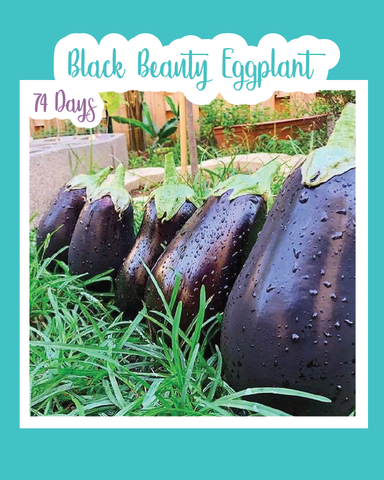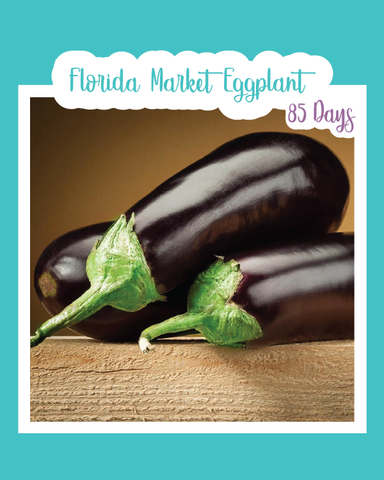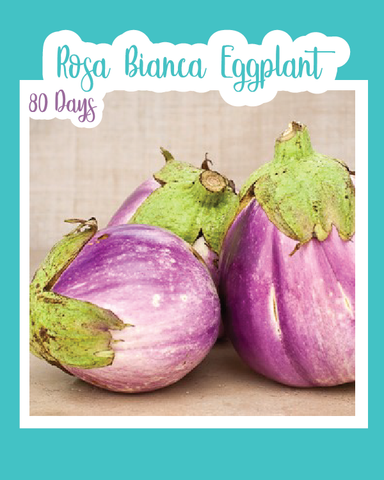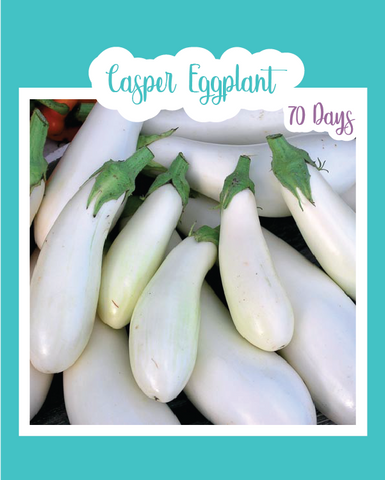
Lao Green Stripe Eggplant
**THIS ITEM IS SOLD OUT FOR THE SEASON**
Seed Count: Approx. 10 Seeds
Days to Maturity: 90 Days from transplant
Description: This productive heirloom originally comes from Laos. The Lao Green stripe eggplant has cream skin with green stripes and shoulders. They grow to about 2-4 inches big, and are best eaten while small. It has great eggplant flavor. It's great for making curries, stuffing, grilling, pickling, baking, and making soups. I love these eggplants because they're so tiny and are perfect to make omelet filling with. They're generally not to fussy, grow well in most areas of the US, and are perfect for the at home gardener, especially if you just want to give eggplant growing a try.
How To Grow
Sowing: Places with long growing seasons can direct sow their seeds when the soil reaches 70 degrees F. However, for short growing seasons, it’s best to start seeds indoors. About 8-10 weeks before the last spring frost, plant the seeds in pots 1/4" deep. Keep them in a sunny window or under a grow light, maintaining a temperature of around 80 degrees. Germination of eggplants can be spotty, and may take several weeks. Keep the seedlings moist, and provide organic matter for the best development. When the average air and soil temp. reach 70 degrees, or about 3 weeks after the last frost, plant seedlings in well drained soil in full sun; for fullest growth, allow each plant 2-3' in all directions. Eggplants also grow very well in containers.
Growing: Eggplants thrive in the full heat of the summer; row covers, black plastic, or other methods to conserve heat may be necessary in some climates. If temperatures threaten to fall below 55 degrees F, cover the plants. Keep the soil evenly moist, and apply fertilizer or organic matter once monthly. I use a mixture of fox farm big bloom and fish emulsion every month to get loads of flower and fruit development. Keep in mind that aphids, hornworms, and white fly can be big pests to this plant.
Harvesting: This eggplant is known for being especially prolific, so get ready for lots of harvesting. When the skin of an eggplant begins to take on a high gloss, it is nearly ripe. To test for ripeness, press gently on the skin; if the flesh remains indented, it is ready to be harvested. Eggplant reach their best eating quality at about 1/2 their mature size, since over-sized eggplant can turn tough and bitter. For freshest taste, use immediately. If necessary, eggplant can be stored in the refrigerator for up to a week. If the seeds inside begin to turn brown, this indicates that your eggplant is overripe.




